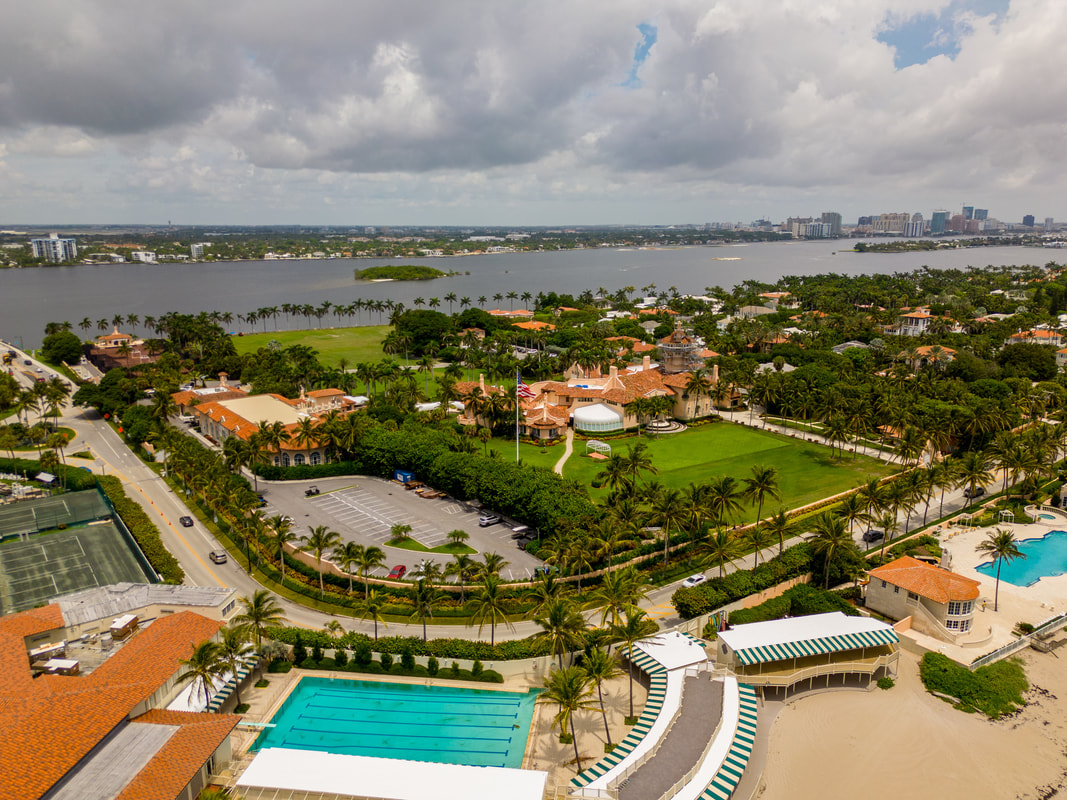|
A Florida federal judge presiding over Donald Trump's classified documents criminal case on Wednesday ordered the former president and his attorneys to review and discuss evidence containing "sensitive compartmented information" in a secure facility approved by the court. In her order issued in the Southern District of Florida, U.S. District Judge Aileen Cannon granted the U.S. government's motion following a two-hour sealed hearing in Fort Pierce on Tuesday, saying that Trump and his attorneys can only review classified information in a "sensitive compartmented information facility approved by a designated chief information security officer for the storage, handling and control of classified information." Trump disagreed with the government's condition, instead seeking to discuss classified material with his attorneys at a secure facility located at his Mar-a-Lago residence. "The court finds that this case will involve information that has been classified in the interest of national security," Judge Cannon said in her order. "The storage, handling, and control of this information will require special security precautions mandated by statute, executive order, and regulation." Trump was initially indicted on 31 counts related to willfully retaining national defense information held in boxes at Mar-a-Lago after leaving office in 2021. Trump and his personal aide Walt Nauta are also each charged with obstruction for allegedly moving some boxes to keep them from being returned by the government pursuant to a grand jury subpoena. A superseding indictment that came down in July added new charges and a third defendant, former Trump aide Carlos De Oliveira, who is accused of trying to delete surveillance footage at Mar-a-Lago last summer. All three men have pled not guilty to the charges. Judge Cannon's order said the CISO "shall establish procedures to assure" the SCIF is accessible during business hours for Trump and his defense team, or at other times upon "reasonable request." The request must be approved by the CISO and in consultation with the court, and U.S. Marshals, according to the order. The secure area must be "outfitted with any secure office equipment" that's requested by the defense and procedures must be established to "assure that the SCIF may be maintained and operated in the most efficient manner consistent with the protection of classified information and in compliance with security requirements," according to Judge Cannon's order. Special procedures for reviewing the classified information include listening to recordings that can only be reviewed on a "stand-alone, non-networked computer or other device within the SCIF that does not have the capability to duplicate or transmit information." Headphones must be used to review the recordings, and they must be wired and can't have any wireless capability, Judge Cannon ordered. In addition, Judge Cannon ordered that all classified materials must be maintained in the SCIF and any documents containing the sensitive information must also be prepared in the facility on word processing equipment approved by the CISO. Discussion of classified information is prohibited except to anyone listed in the order, to the court, and any court personnel and anyone with the government identified by the CISO who holds the "appropriate security clearances and have been determined to have a need-to-know that information." Judge Cannon also prohibited Trump and his defense team from referencing any classified material leaked into the public domain, saying the information is not automatically declassified unless specifically stated by the U.S. government. "Persons subject to this order are advised that direct or indirect unauthorized disclosure, retention or handling of classified documents or information could cause serious damage, and in some cases exceptionally grave damage, to the national security of the United States, or may be used to the advantage of a foreign nation against the interests of the United States," Judge Cannon said. Attorneys representing Trump and the Special Counsel did not immediately respond to requests for comment Wednesday. The government is represented by David V. Harbach II, Jay I. Bratt, Julie A. Edelstein and Michael E. Thakur of the Special Counsel's Office. Trump is represented by Christopher M. Kise of Continental PLLC and Todd Blanche of the Blanche Law Firm. Nauta is represented by Sasha Dadan of the Dadan Law Firm and Stanley E. Woodward Jr. of Brand Woodward Law LP. De Oliveira is represented by John S. Irving of Earth & Water Law. The case is U.S. v. Trump et al., case number 9:23-cr-80101, in the U.S. District Court for the Southern District of Florida.
0 Comments
Leave a Reply. |
HISTORY
April 2024
Categories |
© Walk 4 Change. All rights reserved.


 RSS Feed
RSS Feed